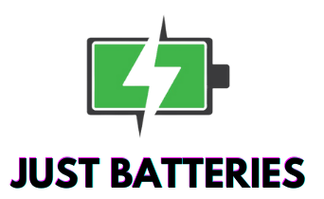
How to Store and Dispose of Alkaline Batteries Safely
Alkaline batteries are commonly used in household devices, such as remote controls, toys, and flashlights, due to their reliability and cost-effectiveness. However, proper storage and disposal are essential for both safety and environmental protection. Improper handling of these batteries can lead to hazards like leakage, corrosion, or contamination of the environment. In this blog, we’ll discuss how to store and dispose of alkaline batteries safely to ensure their longevity and reduce harmful impacts on the planet.
1. Proper Storage of Alkaline Batteries
Storing alkaline batteries correctly is crucial for maintaining their effectiveness and preventing potential leaks or damage. Follow these guidelines to store your batteries safely:
-
Keep Batteries in a Cool, Dry Place: Store alkaline batteries in a temperature-controlled environment, away from extreme heat or cold. High temperatures can cause the batteries to leak or degrade, while freezing temperatures can reduce their efficiency. Ideal storage conditions are between 15°C to 25°C (59°F to 77°F).
-
Avoid Humidity: Store batteries in a dry area, as moisture can cause rust and lead to leakage. Keep them away from damp places, such as bathrooms for basements.
-
Separate Batteries from Metal Objects: Prevent batteries from coming into contact with conductive materials, such as coins or keys, as this can lead to short-circuiting or heat build-up. It’s best to keep the batteries in their original packaging or a plastic container.
-
Store Batteries Upright: Keep batteries stored in an upright position to prevent leaking. Ensure the positive and negative ends don’t come into contact with one another, as this can result in a short circuit.
2. Signs That a Battery Needs to Be Disposed Of
It’s important to monitor the condition of your batteries to avoid any safety issues. If you notice any of the following signs, it’s time to dispose of your alkaline batteries:
-
Corrosion: Visible corrosion around the battery’s terminals is a clear indication that the battery has leaked or is about to fail.
-
Leaking or Puddling Fluid: If you notice any leakage or fluid seeping from the battery, handle it with caution and prepare for disposal.
-
Diminished Performance: If your device shows signs of reduced performance, it could be due to battery wear, and it may need to be replaced.
3. How to Safely Dispose of Alkaline Batteries
Disposing of alkaline batteries requires careful consideration to prevent environmental harm and comply with local regulations. Unlike other types of batteries, most alkaline batteries can be disposed of with regular waste in certain regions, but it's always important to verify the rules in your area. Here are general guidelines for disposal:
-
Check Local Regulations: Some areas have strict guidelines regarding battery disposal, especially when it comes to hazardous waste. Research your local waste management rules to ensure you are following proper disposal methods.
-
Use Battery Recycling Stations: Many communities and retailers provide battery recycling stations. These stations accept old batteries, including alkaline ones, to ensure they are disposed of in an environmentally friendly manner.
-
Avoid Throwing Batteries in the Trash (When Not Allowed): While alkaline batteries are generally less harmful than other types of batteries, they still contain substances that could potentially leak into the environment. If your local regulations allow, dispose of them in a designated battery collection bin.
-
Never Burn Batteries: Never attempt to burn alkaline batteries. Heating batteries can cause them to explode or leak dangerous chemicals.
4. Eco-Friendly Battery Disposal Alternatives
To reduce the impact on the environment, consider using eco-friendly battery options, such as rechargeable batteries, which can be reused many times before needing to be disposed of. This reduces the overall number of batteries being discarded, conserving resources and minimizing waste.
5. Safety Precautions When Handling Batteries
When handling old or damaged batteries, take extra precautions:
-
Wear Gloves: If you’re dealing with leaking or corroded batteries, wear gloves to protect your skin from harmful chemicals.
-
Use a Non-Conductive Container: Place damaged batteries in a non-conductive container, such as a plastic bag or sealed box, to prevent short circuits and contamination.
Conclusion
Storing and disposing of alkaline batteries properly is crucial for safety and environmental protection. By following simple guidelines, like keeping them in a cool, dry place and disposing of them responsibly, you can extend their life and reduce waste.
At Just Batteries Australia, we’re here to help with all your battery needs with expert advice on safe storage and disposal, ensuring your devices and the environment stay powered responsibly.
